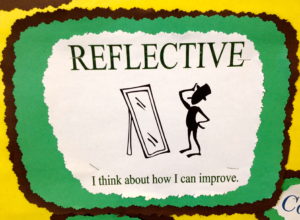
The title of this sporadic blog series, You Need To Read, is a bit of an overstatement. I do think these books are worth reading, though. So, as I wrote in an earlier post, every once in a while I’ll be telling you about books that are helping me preach. My reviews will be fairly brief compared to some and will focus on how the book/author has helped me. I will not spend hardly any words on my disagreements with the book. I don’t read these books in order to be able to state my disagreements. I read them to profit and realize I won’t agree with everything (we hardly ever read a book like that, right?).
Unapologetic: Why, despite everything, Christianity can still make surprising emotional sense by Francis Spufford (HarperOne, New York, 2013)
Unapologetic: Why, Despite Everything, Christianity Can Still Make Surprising Emotional Sense
Okay, this is a helpful book, but for two reasons, it may not be a book for everyone. First, Spufford is nowhere near being what I would call a conservative evangelical of the US variety. Second, he swears like an unsanctified sailor. I grew up in an extended family that was adept at swearing in both English and French, so I’m used to hearing profanity. But, at times, thankfully, it still jars me; and Spufford did jar me at time.
Spufford explains his approach: “Why do I swear so much in what you are about to read? To make a tonal point: to suggest that religious sensibilities are not made of glass. do not need to hide themselves nervously from whole dimensions of human experience.” (p. xiii) So, you have been warned.
However, the book helped me like I was hoping it would: by giving me new ways to explain life and the Christian faith to un-Christian attendees.
Reacting to a sign on the atheist bus in London (yes, that’s a real thing! “There’s probably no God. Now stop worrying and enjoy your life” p. 7). Spufford writes, “But enjoyment is one emotion. The only things in the world that are designed to elicit enjoyment and only enjoyment are products, and your life is not a product…” (p. 8). That’s such a good way to challenge the goal of non-Christians. Or, concerning the subject of science versus Christianity: “This world believes that it has science on its side. Indeed, by an act of oblivious metaphorical digestion, it tends to believe that it is science…” (p. 70).
Spufford also made me think about the Christian faith in new ways. For instance, “…it is…a mistake to suppose that it is assent to the propositions that makes you a believer. It is the feelings that are primary. I assent to the ideas because I have the feelings; I don’t have the feelings because I’ve assented to the ideas” (p. 19). I don’t know about you, but I never think about faith at the level of the affections. He actually frames his writing by saying, “This…is a defense of Christian emotions—of their intelligibility, of their grown-up dignity” (p. 23).
Spufford accurately captures the conundrum Jesus creates when He raises the morality bar extremely high in places like the Sermon on the Mount: “He talks as if virtue is almost unachievable, yet still compulsory” (p. 115).
I wished I would have read the book before preaching through all the “one another’s” in the NT. Spufford describes loving each other dearly as: “Our hearts are in our eyes as we look at each other” (p. 200).
I found the author’s definition of sin very insightful: “[sin] always refers to the pleasurable consumption of something….’indulgence’ or ‘enjoyable naughtiness’…. our active inclination to break stuff, ‘stuff’ here including moods, promises, relationships we care about, and our own well-being and other people’s, as well as material objects whose high gloss positively seems to invite a big fat scratch” (pp. 25, 26, 27). (as a huge bonus, the last part of this definition highlights Spufford’s excellent writing style; you will enjoy reading his sentences when he’s not swearing).
And how about his description of our broken world: “We do entirely agree that there’s a crack in everything. (That’s how the light gets in? Oh yes; that most of all) The vision is of an intrinsically imperfect cosmos, hairlined through and through with flaws, chipped and battered and patched” (p. 46).
I especially profited from chapter 4, Hello, Cruel World. Spufford writes: “Every one of our voyages ends in disaster. Every ship of ours is the Titanic” (p. 92).
And Spufford doesn’t pull punches as it relates to attempting to come to grips with a sovereign God’s part in it all. After seeing a church newsletter where the “Almighty” is thanked for fixing the minister’s car via a miraculously cheap quote from a garage, “For if God was willing to exert Himself over the minister’s sparkplugs, but wouldn’t get out of bed to stop the Holocaust, what sort of picture would that draw?” (p. 94).
Jesus and miracles were never intended to stop the brokenness completely: “One man doing miracles in West Asia doesn’t even move the leprosy statistics. The cruelty of the cruel world reproduces itself far faster than his slow hands can move. He brings sight to blind eyes, and all the causes of blindness rage on” (p. 131).
And, then, I loved this statement: “We don’t have an argument that solves the problem of the cruel world, but we have a story” (p. 106). That’s what we preach each Sunday: the Story of how our God is redeeming His world through our Lord Jesus Christ and His Holy Spirit.
Preach the Story well for the sake of God’s reputation in the Church and in Christ Jesus.
Randal
Like this:
Like Loading...










